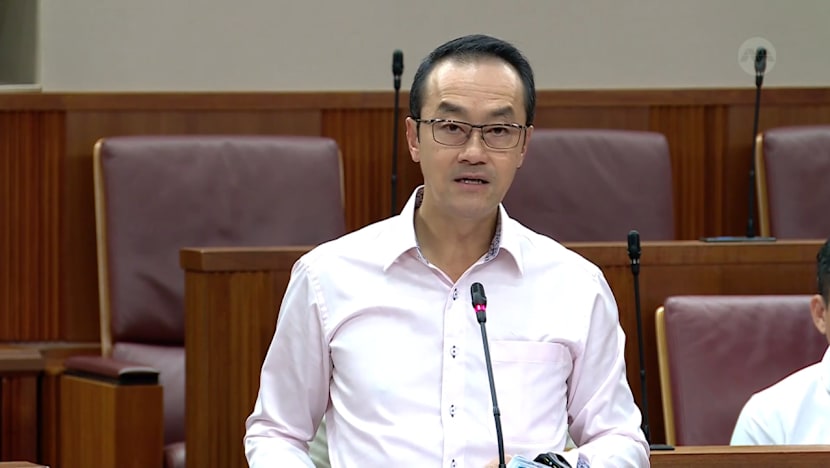'Excessive' enforcement on foreigners working illegally in food delivery comes at a cost: Koh Poh Koon
This could lead to "a lot of inconvenience" for food delivery workers and consumers, said Senior Minister of State for Manpower Koh Poh Koon.

Senior Minister of State for Manpower Koh Poh Koon speaking in parliament.

This audio is generated by an AI tool.
SINGAPORE: Excessive enforcement action to deter foreigners working illegally on delivery platforms can affect the livelihoods of legitimate platform workers and customers waiting for food, said Senior Minister of State for Manpower Koh Poh Koon on Friday (Sep 26).
Instead, what is more sustainable is for operators to go "more upstream", and run frequent facial recognition checks on workers throughout the day, he said. This is on top of the facial verification done by operators during the onboarding process.
If illegal usage of account does happen frequently enough, this will raise "red flags" and allow authorities to take more targeted action to investigate that particular account and take the person to task, added Mr Koh.
He was responding to a clarification from Leader of the Opposition Pritam Singh who asked if the Ministry of Manpower's (MOM) enforcement capacity may need to be increased to "protect" local platform workers.
Mr Singh also asked if the recommendation by a trilateral group for platform operators to conduct audits of all outsourced workers and submit their work pass documents to the ministry when asked may be "too passive" and gives platform operators "too much flexibility".
The workgroup involves Grab Singapore, the Ministry of Manpower and the Ministry of Transport (MOT), working with the National Trades Union Congress (NTUC) and its affiliated associations.
Mr Koh pointed out that there are various ways to deter foreigners from working illegally on delivery platforms.
"We could do it in a way that actually imposes a lot of onerous demand on companies and workers. Or we could do in a way that actually solves the problem without increasing the burden on the stakeholders," he said.
Only Singaporeans and Permanent Residents can perform platform work. However, platform operators can legitimately outsource delivery jobs to third-party logistics companies. These companies can employ foreigners with a valid work pass and the number of foreigners is capped at the industry's dependency ratio ceiling.
A "SIDE EFFECT"
In his response to parliamentary questions filed by Workers' Party chief Mr Singh and Ms Yeo Wan Ling (PAP-Punggol), Mr Koh said MOM has conducted enforcement operations at "hotspots" islandwide over the past few months to detect and deter foreigners from performing illegal platform work.
A total of 644 delivery workers were checked during these operations, with four found to be working illegally. Another 22 foreigners were legitimate work pass holders, he added.
"The intensive action that we took in the last few months ... probably gives a more accurate reflection of the realities on the ground because these hotspots are identified by platform workers themselves, who through their observation, seem to observe more foreigners present in these hotspots," said Mr Koh.
"And even with that intensive operation at hotspots that are identified by workers on the ground, the numbers as I showed earlier is four out of 644."
And "excessive" enforcement action has a "side effect" as well, added Mr Koh.
For instance, he pointed out that each check could take close to 10 minutes.
"In that process, there is a bottleneck created. The rest of the workers cannot go, they have to wait until we check through all of them before they can go ahead and do the delivery," he added.
"So there is a problem with them meeting their delivery timelines, and the consumers at the other end, waiting for the food to arrive, will also have delays receiving their food. So there is a cost that the system has to bear, and a lot of inconvenience for the workers themselves and to the consumers. So we have to take a very balanced and calibrated approach."
Mr Singh also asked if MOM intends to track the number of foreigners from outsourced companies involved in the food delivery space.
In response, Mr Koh said that there are operational considerations making it "difficult" to do so.
















